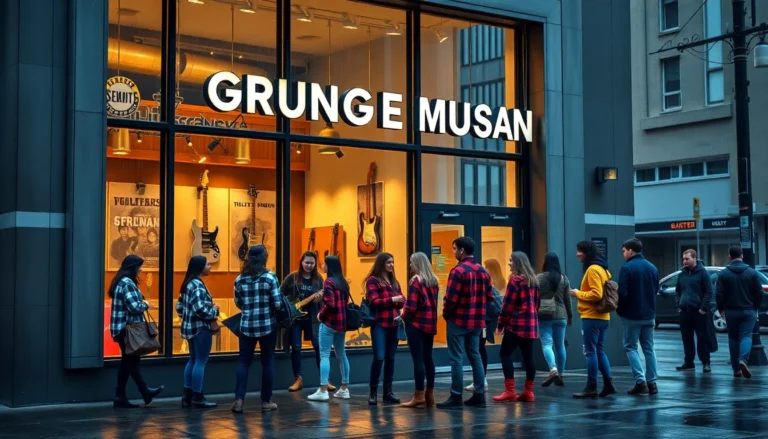Have you ever wondered what makes societies tick? Society culture isn’t just about traditions and practices: it’s the vibrant tapestry woven from norms, values, and shared experiences that define how we interact with one another and view the world. Just think of it as the crazy, sometimes chaotic glue that holds us together. From the songs in our playlists to the schools our children attend, society culture shapes everything, and understanding it can be downright fascinating.
Table of Contents
ToggleDefining Society Culture

Society culture encompasses the shared beliefs, behaviors, and practices that characterize a group of people. At its core, it’s a living system consisting of two major contributors: norms and values, which are essential to understanding how people function together.
The Role of Norms and Values
Norms are the unwritten rules that govern acceptable behavior, while values represent the core principles that underpin a society. For example, many societies champion individualism, whereas others highly value collectivism. These differences can dictate everything from family dynamics to workplace interactions.
Influences of Religion and Spirituality
Religion and spirituality also play a formidable role in shaping culture. In various cultures, religious practices can dictate dress codes, dietary restrictions, and holiday celebrations. Think about it, cultural elements often stem from spiritual beliefs, enhancing the complexities of societal norms and values.
Social Institutions and Their Impact
Social institutions, such as family, education, and media, are instrumental in molding society culture. They act as vessels through which cultural values are transmitted and societal norms are reinforced.
Education as a Cultural Element
Education, for instance, is more than just textbooks and exams: it’s a critical component of culture. Schools are often a reflection of societal values. They teach not only academic knowledge but also social skills and cultural norms. A well-rounded education fosters a sense of community while encouraging innovation and critical thinking.
The Media’s Role in Shaping Culture
The media, too, has a profound influence on society culture. Whether it’s through news outlets, social media platforms, or entertainment, the messages conveyed shape public perception and societal attitudes. Positive or negative portrayals can bolster a culture’s values or challenge its norms, sparking discussions that lead to societal evolution.
Art, Music, and Literature in Society
Art, music, and literature serve as cultural expressions that offer insights into the values and experiences of societies.
Celebration of Diversity in Cultures
These forms of expression often highlight the unique characteristics of various cultures, celebrating diversity in an engaging way. Consider festivals showcasing traditional dishes, local art, or music, these events not only honor cultural heritage, but also invite communal participation, fostering unity.
Cross-Cultural Influences and Globalization
Also, globalization has paved the way for cross-cultural exchanges that enrich society culture. An American might easily enjoy Japanese anime while a Brazilian grooves to K-pop, illustrating how cultural lines blur. This interconnectedness catalyzes creative collaborations, leading to new artistic expressions that resonate globally.
Challenges in Modern Society Cultures
While society culture evolves, it faces modern challenges that can threaten its diversity and richness.
Addressing Cultural Homogenization
Cultural homogenization is a pressing concern in an increasingly globalized world. As dominant cultures (often Western) gain visibility, unique cultural practices risk being overshadowed. This loss can lead to a more uniform global culture, stripping away valuable distinctions.
The Impact of Technology on Cultural Practices
Also, technology continues to influence cultural practices. While it has revolutionized communication and accessibility, it also raises questions about authenticity. Online interactions often replace real-life engagements, challenging traditional cultural practices and altering how cultural values are transmitted.








